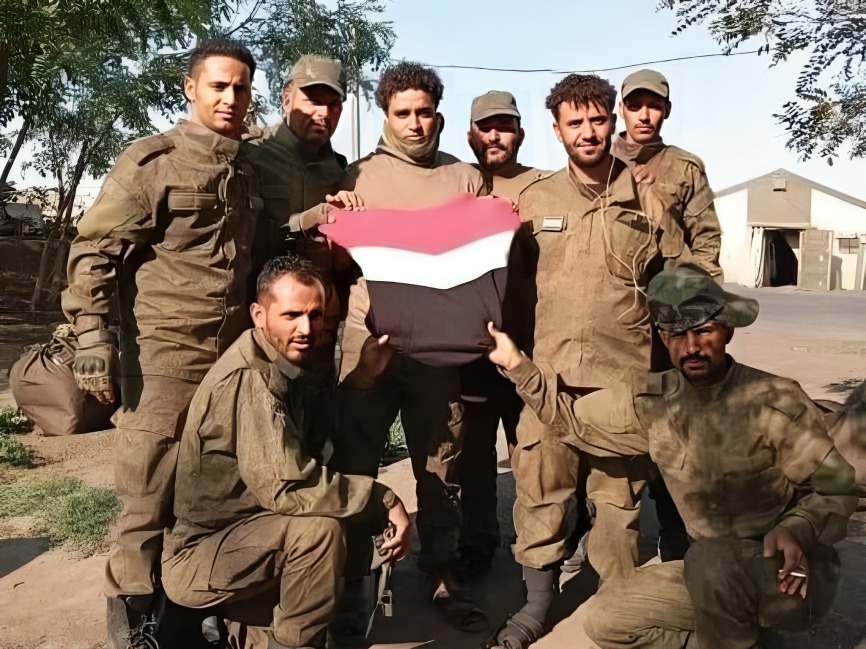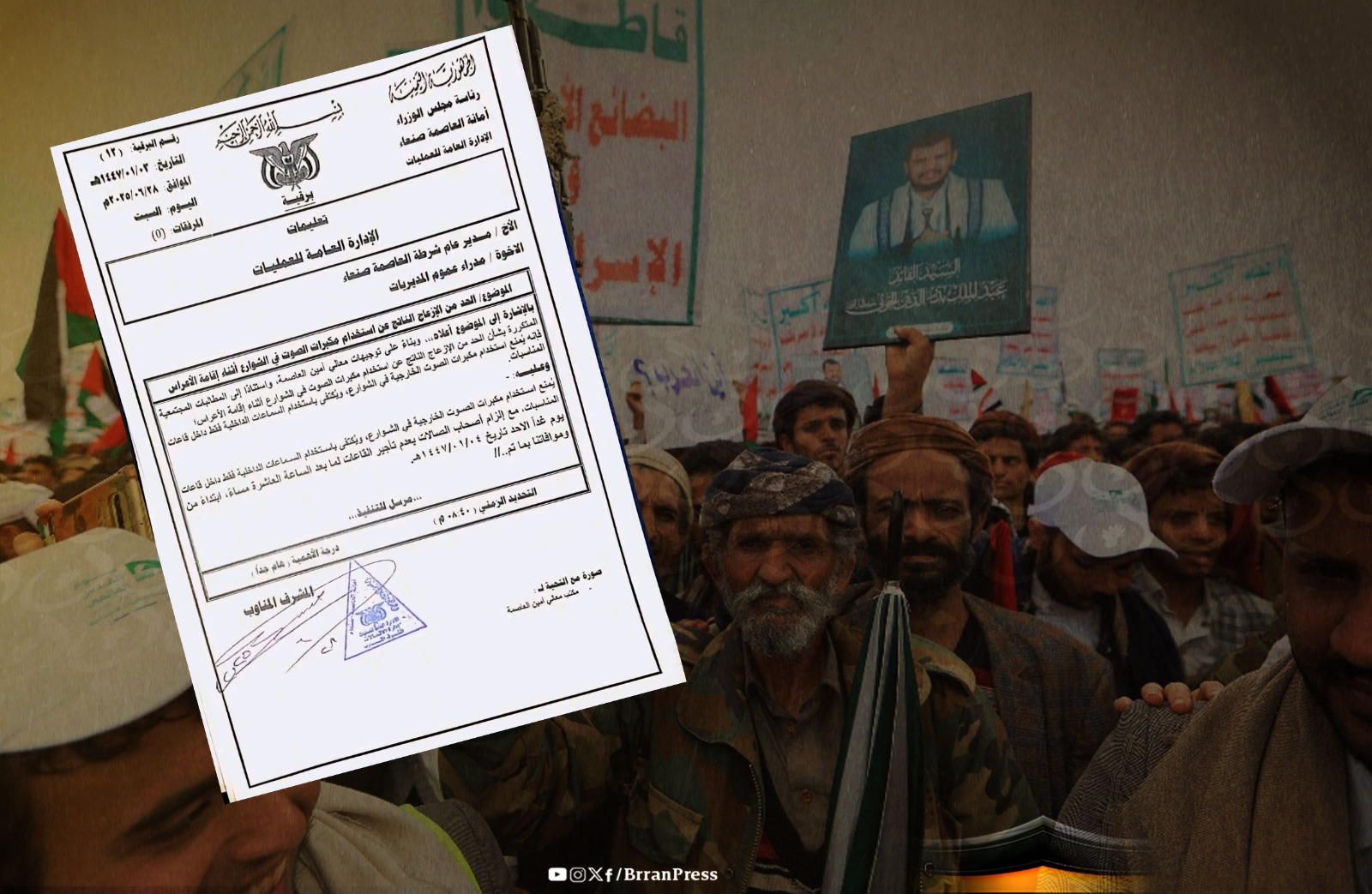
Barran Press
On Sunday, November 24, 2024, the British newspaper "Financial Times" reported that the Russian armed forces have recruited hundreds of Yemeni men to fight in Ukraine through a mysterious smuggling operation, highlighting the growing ties between Moscow and the Houthi rebel group.
According to the report, reviewed by "Barran Press," Yemeni recruits who traveled to Russia said they were promised high-paying jobs and even Russian citizenship. However, upon arrival with the help of a Houthi-linked company, they were forcibly conscripted into the Russian army and sent to the front lines in Ukraine.
The appearance of a group of Yemeni mercenaries in Ukraine demonstrates how the conflict increasingly attracts foreign soldiers as casualties rise and the Kremlin seeks to avoid full mobilization. The Yemeni recruitment effort underscores how Russia, driven by its confrontation with the West, is drawing closer to Iran and its allied armed groups in the Middle East.
The newspaper obtained contracts signed by Yemeni recruits with a company founded by Abdul Wali Abdu Hassan Al-Jabri, a prominent Houthi politician. The registration documents for Al-Jabri's company, based in Salalah, Oman, describe it as a tourism and retail supplier of medical equipment and pharmaceuticals.
American diplomats told the newspaper that the understanding between the Kremlin and the Houthis, which was unimaginable before the war in Ukraine, signifies how far Russia is willing to go to expand this conflict to new theaters, including the Middle East.
U.S. Special Envoy to Yemen Tim Lenderking stated that Russia is actively seeking to establish contacts with the Houthis and discuss arms transfers, although he declined to provide further details. He added that "there are Russian individuals in Sana'a helping to deepen this dialogue," according to the newspaper.
Majed Al-Madhaji, head of the Sana'a Center for Strategic Studies, said Russia is also interested in "any group in the Red Sea or the Middle East that is hostile to the United States." He added that "the mercenaries are being organized by the Houthis as part of efforts to build ties with Russia."
The "Financial Times" requested a comment from the Houthi spokesperson but received no response. Earlier this month, Houthi political bureau member Mohammed Al-Bukhaiti told the Russian news site Meduza that his group is in "constant contact" with the Russian leadership to "develop these relations in all fields, including economy, politics, and military."
Farea Al-Muslimi, a Gulf expert at Chatham House, said that "few Yemeni mercenaries have any training, and many do not want to be there." He added that "one of the things Russia needs is soldiers, and it is clear that the Houthis are recruiting them for Russia," describing it as an opening to Moscow. "Yemen is a very easy place to recruit soldiers. It is a very poor country."
The "Financial Times" believes that the recruitment of Yemeni soldiers began as early as July. The newspaper reviewed a recruitment contract dated July 3, signed by the head of the contractor soldier selection center in Nizhny Novgorod.
One recruit, named Nabil, told the "Financial Times" via text messages that he was part of a group of about 200 Yemenis recruited into the Russian army in September after arriving in Moscow. He explained that some of these fighters were "experienced," while many had no military training.
Nabil, who requested anonymity, said they were "tricked into traveling to Russia and signed recruitment contracts they could not read." He was lured by promises of lucrative jobs in fields like "security" and "engineering," hoping to earn enough to complete his studies.
A few weeks later, Nabil and four other Yemenis who had recently arrived were detained in a forest in Ukraine, wearing military uniforms with Russian insignia and their faces covered with scarves. "We are under bombardment," he said.
In a video shared with the "Financial Times," one man said, "Mines, drones, and digging trenches," adding that one of his colleagues attempted suicide and was taken to the hospital.
The men in the video said they were carrying wooden planks through a mine-filled forest, apparently to build a bomb shelter. "We don't even get five minutes to rest; we are very tired."
In another message sent a few days later, they said they were not wearing winter clothes. Nabil's uncle, who lives in the UK, told the newspaper last week that his nephew was recently injured and is in the hospital but could not share more details.
Another Yemeni, Abdullah, said he was promised a reward of $10,000 and $2,000 monthly, along with eventual Russian citizenship, to work in Russia manufacturing drones.
He added that when he arrived in Moscow on September 18, he and his group were forcibly taken from the airport to a facility five hours away, where a man speaking broken Arabic fired a gun over their heads when they refused to sign the recruitment contract, which was in Russian. "I signed it because I was scared," he said, according to the newspaper.
Afterward, they were put on buses to Ukraine, received basic military training, and were sent to a military base near Rostov, close to the Ukrainian border. Many of the original group members died in Ukraine, having been brought to the war by "human traffickers." "It was all a lie."
The "Financial Times" reported that Al-Jabri General Trading and Investment Company did not respond to multiple phone calls and emails sent to the address listed in the company's registration documents. Al-Jabri, the founder, could not be reached on his phone number.
Al-Jabri is a prominent politician and member of the Yemeni parliament, which split in 2015 due to the civil war, during which he sided with the Houthis. He is a general in the Houthi-allied army faction and was one of 174 Houthi leaders sentenced to death in absentia by a military court representing the internationally recognized government in 2021 for his role in the Houthi-led coup in 2015.
The Houthis sent at least two official delegations to Moscow this year, where they met with senior Kremlin officials such as Mikhail Bogdanov, the Kremlin's envoy to the Middle East.
American diplomats said Moscow provides various forms of assistance to the Houthis, including targeting data for some missile launches, and has discussed arms sales, including advanced anti-ship missiles, although experts say there is no evidence that any arms sales have occurred.
Lenderking said, "We have seen reports of discussions about [anti-ship missiles] and other types of lethal equipment that would enhance what the Houthis can already do."
Regarding Russia's recruitment of Yemeni mercenaries, Lenderking said he had seen reports. "I would say this certainly concerns us," he added. "It is part of this trend, not something that would necessarily surprise us."
The Yemeni ambassador in Moscow, Ahmed Salem Al-Wahishi, referred questions about the Russian army's recruitment of Yemenis to the embassy's military attaché, who did not respond to phone calls and messages.
Abdullah was one of 11 Yemenis allowed to leave Russia for Yemen via Oman earlier this month, thanks to efforts by the International Federation of Yemeni Migrants, which pressured the Yemeni government after popular protests.
Ali Al-Sabahi, chairman of the federation, told the British newspaper, "This is a humanitarian issue that unites all Yemenis, regardless of political affiliation." He confirmed that "hundreds of Yemenis are still in Russia."





